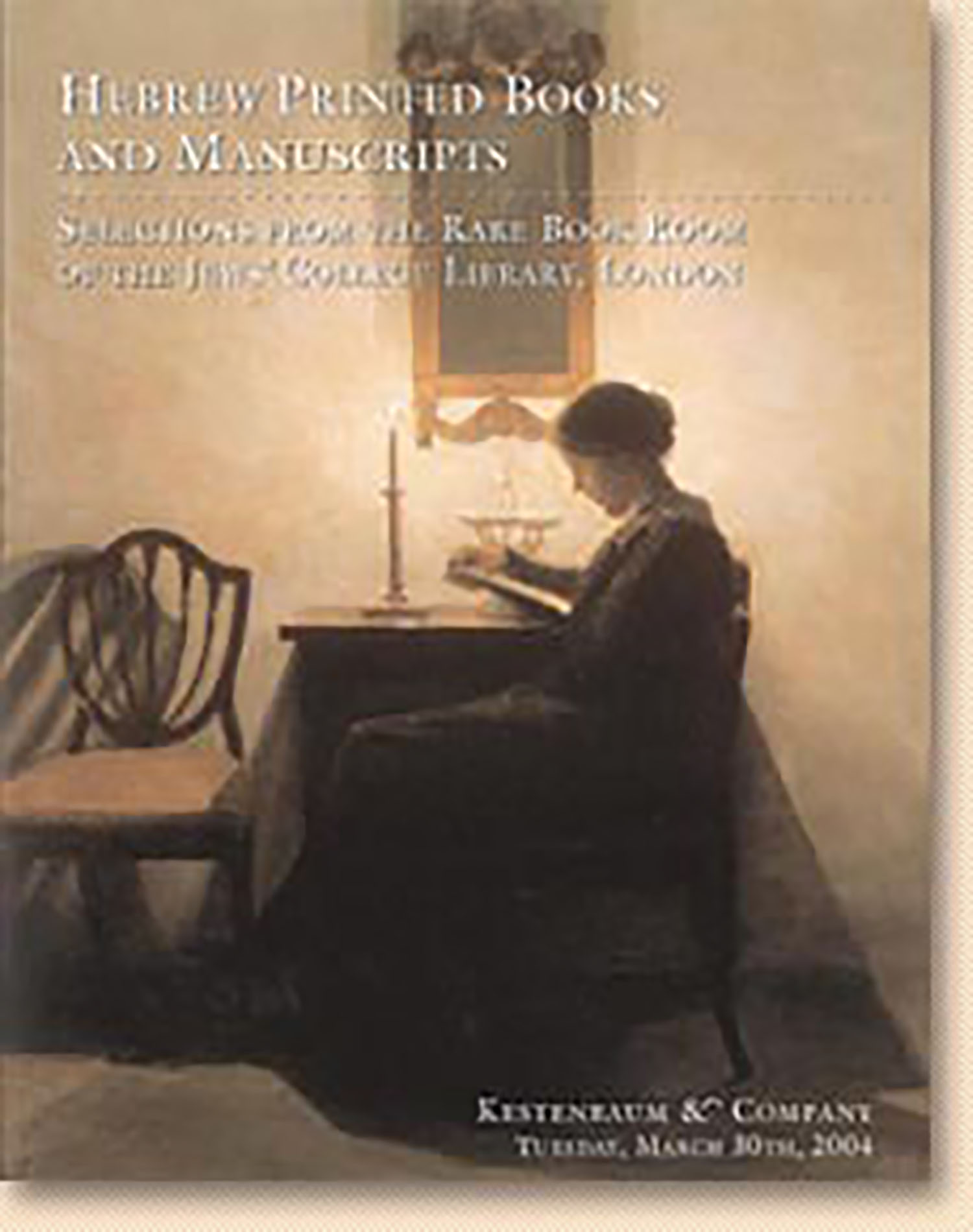Be'er Moshe (Pentateuch and Five Scrolls). * Lekach Tov (Prophets and Writings). [An interlinear glossary-like Yiddish translation of the Bible]

AUCTION 23 |
Tuesday, March 30th,
2004 at 1:00
Hebrew Printed Books & Manuscripts from The Rare Book Room of the Jews College Library, London The Third Portion
Lot 199
SHERTLAN (SERLES), MOSES BEN ISSACHAR HALEVI
Be'er Moshe (Pentateuch and Five Scrolls). * Lekach Tov (Prophets and Writings). [An interlinear glossary-like Yiddish translation of the Bible]
Prague: Moses ben Bezalel Katz 1604
Est: $1,000 - $1,500
PRICE REALIZED $800
In the bibliographic literature there are three different renditions of the author's family name: “Serles” (EJ); “Sertel” (Zinberg); “Shertlan” (Vinograd). At the conclusion of Be'er Moshe the author signs himself “Shertlan.” Unfortunately, there is scant biographic information concerning the author.
One of the earliest works with Yiddish translation. In his introduction, the author states he was prompted to publish this Yiddish translation having witnessed the faulty understanding of the Biblical text by his students. The author's method is to intersperse the Yiddish translation with Hebrew passages of original interpretation. Also, he has included at the conclusion of Psalms, Rabbi David Kimchi's Teshuvot la-Notzrim (Responses to the Christians).
Zinberg calls into question whether the Prague edition of 1604 is truly the first edition. In an ordinance of the society “Talmud Torah” of Cracow, it is noted: “It is forbidden for any teacher to teach the Pentateuch with any commentary other than the precise commentary Be'er Moshe which is in our language that we speak here.” (Güdemann, Quellenschriften, 233). Since this ordinance appeared at the end of the sixteenth century, “it must be conjectured that the Prague edition of 1604 that has come down to us was not the first” (Zinberg, Vol. VII, p. 136). Contrary to Zinberg, the other sources we have consulted consider Prague 1604 to be the FIRST EDITION. See also EJ, Vol. 11, col. 357
